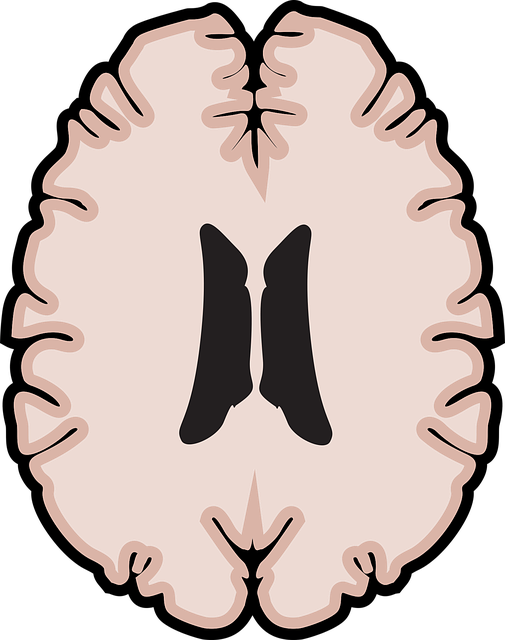Westminster Exposure and Response Prevention (WERP) Therapy is a cognitive-behavioral approach designed to tackle negative thought patterns and behaviors by combining CBT with strategic exposure. It empowers individuals to overcome fears, enhance self-esteem, and improve overall well-being through education on cognitive distortions, skill development for challenging thoughts, and gradual exposure to triggers. Positive thinking exercises, such as mindfulness meditation, cultivate compassion and adaptive, positive perspectives, leading to better mental health in daily life. Tracking progress is vital, involving goal setting, thought assessment, and celebrating achievements, reinforcing healthier thinking habits over time. For healthcare providers, self-care practices like sleep, stress reduction, and social support are crucial for resilience and improved patient care.
“Discover the power of positive thinking with Westminster Exposure and Response Prevention Therapy (WERP). This evidence-based approach equips individuals to identify and transform negative thought patterns into constructive ones. By implementing specific exercises, WERP fosters a resilient mindset, enhancing emotional well-being.
Learn how to recognize and challenge unhelpful thoughts, then explore practical strategies for daily integration. Track progress and sustain positive changes, unlocking a happier, more balanced life. Embrace WERP’s transformative potential.”
- Understanding Westminster Exposure and Response Prevention Therapy (WERP)
- Identifying Negative Thought Patterns
- The Role of Positive Thinking Exercises
- Implementing WERP in Daily Life
- Tracking Progress and Sustaining Positive Changes
Understanding Westminster Exposure and Response Prevention Therapy (WERP)

Westminster Exposure and Response Prevention Therapy (WERP) is a powerful approach to mental health treatment that focuses on challenging and modifying negative thought patterns and behaviors. This therapy, developed by Dr. Stephen P. Ilard, draws on principles of cognitive-behavioral therapy (CBT), offering individuals a way to improve their self-esteem and overall well-being. WERP involves gradual exposure to feared situations or objects while preventing the typical emotional responses that reinforce negative beliefs. By doing so, it enables individuals to replace maladaptive behaviors with healthier coping strategies.
The therapy’s core components include education on cognitive distortions, skill-building for challenging thoughts, and strategic exposure to triggers. This structured process allows participants to develop a more positive and realistic perspective, leading to better mental health outcomes. WERP has proven effective in various settings, including community outreach programs and public awareness campaigns designed to address specific fears or phobias, making it a valuable tool for mental health professionals and community organizers alike.
Identifying Negative Thought Patterns

Negative thought patterns are often automatic and subconscious, forming over time through various life experiences. These patterns can range from minor self-doubt to more severe cognitive distortions. Identifying these negative thoughts is a crucial step in implementing positive thinking exercises, such as those rooted in Westminster Exposure and Response Prevention Therapy (W-ERP). By recognizing recurring negative thought cycles, individuals can begin to understand their triggers and the underlying beliefs that contribute to them.
This process involves becoming attuned to internal dialogue, paying close attention to self-talk during different situations or emotions. Through W-ERP techniques, one learns to challenge these negative thoughts and replace them with more realistic, balanced perspectives, thereby fostering self-esteem improvement and anxiety relief while promoting mental wellness.
The Role of Positive Thinking Exercises

Positive thinking exercises play a pivotal role in enhancing mental wellness and overall life satisfaction. These practices, often incorporated into therapeutic approaches like Westminster Exposure and Response Prevention (ERP) Therapy, empower individuals to challenge negative thought patterns and replace them with more adaptive and positive ones. By exposing oneself to stressful or anxious triggers and learning to respond differently, one can cultivate a more optimistic mindset.
In the context of the Mental Wellness Podcast Series Production, these exercises are not just theoretical concepts but practical tools that listeners can apply in their daily lives. Compassion cultivation practices, for instance, encourage individuals to embrace self-compassion and kindness towards others, fostering an environment conducive to positive thinking. This approach resonates with the broader goal of improving mental health and promoting a sense of balance in today’s fast-paced world.
Implementing WERP in Daily Life

Implementing Westminster Exposure and Response Prevention (WERP) Therapy in daily life can be a game-changer for mental well-being. This approach, rooted in cognitive behavioral therapy, teaches individuals to challenge negative thoughts and change maladaptive behaviors. By gradually exposing yourself to situations that trigger anxiety or distress, you learn to manage your responses, reducing the power these thoughts have over you.
Incorporating WERP into your self-care practices involves mindful meditation and a dedicated self-care routine development. Mindfulness meditation helps to observe thoughts without judgment, enabling you to recognize and question negative patterns. This practice, combined with WERP techniques, allows for a deeper understanding of your thoughts and emotions, fostering better mental health in the long run.
Tracking Progress and Sustaining Positive Changes

Tracking progress is a vital component of any positive thinking exercise. It allows individuals to witness their personal growth and identify areas that require further attention. This process involves setting measurable goals, regularly evaluating one’s thoughts and behaviors, and celebrating small victories along the way. By quantifying progress, people can gain a better understanding of what works for them and make informed adjustments to sustain positive changes. For instance, using techniques like Westminster Exposure and Response Prevention Therapy (WERP), individuals learn to confront and reframe negative thought patterns, tracking their emotional responses over time helps reinforce new, healthier thinking habits.
Maintaining these changes requires consistent effort and commitment. Healthcare providers, in particular, often face the challenge of burnout due to high-stress work environments. Incorporating effective burnout prevention strategies, such as regular self-care practices, is essential for long-term success. This includes prioritizing sleep, engaging in stress-reducing activities, and cultivating a supportive social network. By integrating these practices into their daily routines, providers can enhance resilience, sustain positive thinking, and ultimately improve patient care.
Westminster Exposure and Response Prevention Therapy (WERP) offers a powerful framework for transforming mental health through positive thinking exercises. By identifying and challenging negative thought patterns, individuals can learn to replace them with healthier, more adaptive thoughts. Implementing WERP in daily life involves practicing these exercises consistently, tracking progress, and sustaining positive changes. This holistic approach not only improves overall well-being but also empowers individuals to navigate life’s challenges with resilience and optimism.












